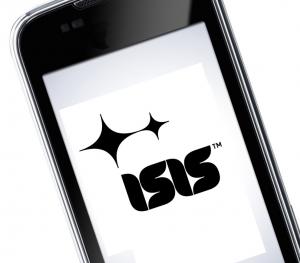Isis Pledges Broad Handset Range, Seeks Contrast with Google Wallet

Six major phone makers will introduce NFC phones that would support the Isis wallet and mobile-commerce applications, the Isis joint venture announced today, promising to offer a larger pool of handsets than Google could offer for its own wallet
Isis, made up of Verizon Wireless, AT&T and T-Mobile USA, said Samsung Electronics, LG Electronics, Research in Motion, HTC, Motorola Mobility and Sony Ericsson would introduce NFC phones that would support Isis technology specifications.
But these specifications mainly apply to how banks and other service providers will provision their payment applications on secure elements in the Isis phones, Isis confirmed to NFC Times. And the Isis specifications largely match global standards for the secure provisioning of applications.
So the announcement does not represent close partnerships or endorsements by the handset makers of the joint venture, since support by the phone makers of the Isis standards really means they support standard NFC technology and secure elements. And all six phone makers had already made known their plans to introduce NFC phones.
But it does indicate there will probably be a pool of NFC-enabled smartphones from a variety of major handset makers that the Isis telcos could put on sale supporting their wallet applications.
And the announcement boosts momentum for the joint venture and helps blunt the bounce rival wallet provider Google received Sept. 19, when it announced the launch of the wallet.
Compared with six major smartphone makers that say they will release NFC phones that could support Isis, Google and its lone carrier partner for the wallet, Sprint, can boast of only one handset so far supporting the feature, Google’s own Nexus S 4G.
Sprint, the third largest U.S. mobile operator, plans more handsets supporting the wallet by early next year. Presumably, that includes many of the future Android phones from Motorola Mobility, which is set to become what Google describes as an autonomous unit of the Web giant. But most observers anticipated that Droid phones and others from Motorola would support Isis, as well, since the Isis telcos are important customers for Motorola.
“Today’s announcement signals the growing acceptance of NFC technology by some of the world’s leading device makers,” said Kouji Kodera, HTC’s chief product officer, in a statement. “At HTC, we see tremendous opportunities for consumers and merchants, as we move beyond traditional payments to a future of NFC-enabled mobile commerce.”
HTC recently released its first NFC-enabled phone for the U.S. market, the 4G Amaze, which T-Mobile has announced it will introduce Oct. 10. It likely will not support Isis until the joint venture is ready to launch services next year, however. T-Mobile and, reportedly, AT&T, also plan to introduce the NFC version of Samsung’s Galaxy S II next month.
The three telcos are planning to launch Isis trials in Salt Lake City, Utah and Austin, Texas, during the first half of 2012, with a national rollout to follow. The Isis wallets will support payment cards, as well as loyalty programs, mobile coupons, transit ticketing and other applications.
The six handset makers included in the announcement are among the top 10 phone manufacturers worldwide, according to second quarter unit shipments reported by U.S.-based Gartner research. Of the four other top 10 handset makers not listed in today’s announcement, Apple is not expected to support NFC in its next iPhone and Nokia and Chinese phone makers ZTE and Huawei do not have large market shares in the United States.
Included in today’s announcement also is support for Isis by U.S.-based DeviceFidelity, which makes contactless microSD cards, which are considered by many as an NFC bridge technology. The cards, which pack tiny contactless antennas, could be inserted into the microSD card slots in phones. This, along with booster antennas placed on the inside back covers of the phones, could give many non-NFC handsets a contactless interface.
DeviceFidelity also has introduced a contactless case and microSD slot for current versions of Apple’s iPhone, which does not have its own card slot. The microSDs inserted into the iPhone case potentially could support an Isis wallet, though today’s announcement did not mention the iPhone. Moreover, DeviceFidelity would have to design a new version of the attachment for the next iPhone and get certification for it from Apple.
The support from the major handset makers follows Isis’ announcement in July that all four major U.S. payment networks, Visa Inc., MasterCard Worldwide, American Express and Discover Financial Services, would be willing to offer contactless applications in an Isis wallet. That announcement helped to restore Isis’ momentum, after the joint venture earlier in the year abandoned it’s plans to introduce its own payment network and Isis-brand acceptance mark at the retail point of sale. Sources have told NFC Times that Isis is in advanced discussions with at least a couple of major banks or issuers, interested in being part of the Isis wallet.
Google with its wallet launch last week also announced that the major payment schemes would support future versions of the wallet. MasterCard’s PayPass application is featured in the current wallet, though payment appears to be one of the few uses for the Google Wallet, so far.













LMFAO, this article is fail. SD card of any sort on an i-device?